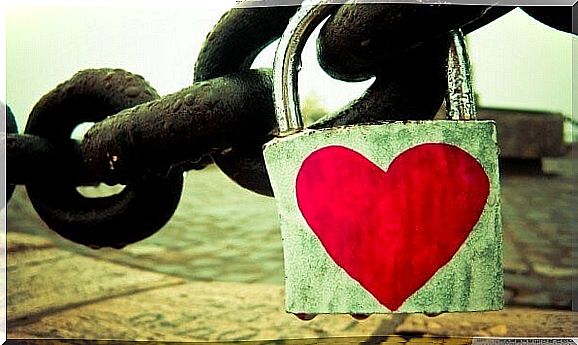Do You Know The 5 Risks Of Emotional Dependence In Couples?

“The wounds that are not seen are the deepest.”
William Shakespeare
One of the most self-destructive emotional relationships that exist is emotional addiction, in which a person realizes and develops an addictive problem towards his partner, friend or family member.
When we are emotionally dependent on someone, we lose our self-esteem, the treasure that makes each of us unique and special. For this reason, today we want to talk to you about 5 risks that emotional dependence generates in one of the most important relationships of our life, the one with our partner.
Identifying and knowing each of these risks will help you regain your self-esteem, motivate you and take charge of your life, without having to put it in the hands of someone else. Thanks to them, you will feel stronger, better, and you will get what you deserve, freedom.
What are the risks of emotional dependence as a couple?
The loss of self-esteem: As we have already told you, emotional dependence generates the loss of our personal self-esteem and, consequently, self-cancellation. People with emotional dependence usually have severe self-esteem problems.
When this occurs within our relationships as a couple, we run the risk of gradually losing the person we love, because we are not aware of the situation or because we are afraid of losing the person himself.
Generates Loss of Identity: An emotionally dependent person lives in a world of which their partner is the center. All her actions, her desires and her actions will depend on that person and what she desires. This situation transforms us into “extensions” of our partner, ie copies, losing our identity, the personality that characterizes us and generating total dependence.
In this way, we will run the risk of physical and psychological abuse. If similar cases occur, it is good to consult a professional and follow a therapy that can help to overcome or avoid this situation.

Physical and psychological abuse by the partner: Sometimes it can happen that your partner perceives the emotional dependence he exerts on you or the opposite. This situation can lead the partner to act and take a dominant role, easily taking advantage of your state and situation.
In couple relationships where one of the two suffers from emotional dependence this problem is very common and frequent.
What favors this situation even more? The assurance of these people that the addict will probably not react to the situation, but will endure everything without rebelling. If you find yourself in one of these situations, or if you endure physical abuse, betrayal, humiliation and suffering, it is necessary that you contact a professional, with whom you feel comfortable and who recommends a therapy suitable for your particular case.
Isolation and loss of social skills: Being in a situation as unpleasant and self-destructive as the emotional dependence of the couple, consumes inwardly. Not feeling free and feeling helpless will gradually lead to social isolation, on the part of family and friends. All this by his own will, because an emotionally dependent person sees his partner as the center of his world.
This isolation slowly leads to the loss and failure to develop social skills. Moving away from what surrounds us and from our reality makes us blind and prevents us from seeing how our life flows, as well as unconsciously increasing our emotional dependence.
Sudden changes in moods: Emotional dependence is a psychological disorder that manifests itself in many and different ways. Addicted people suffer from “depressed mood”, that is, sudden changes in mood during their daily life.
Experiencing this emotional state leads to depression, stress and anxiety. All of this will favor the development of feelings of guilt, feelings of emptiness, jealousy, and even worse, fear. These symptoms can be calmed only when your partner is present, but paradoxically caused by the absence of the same.









